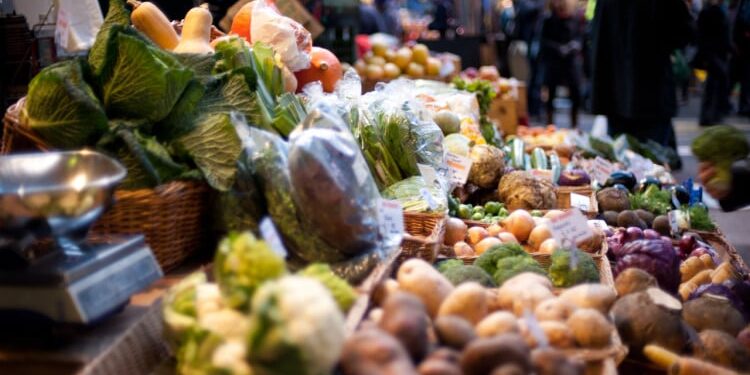Starting with the interaction between humans and wildlife, which is said to have caused the Covid-19 outbreak, and the empty supermarket shelves early in the lockdown, through to the inherent difficulties of returning to how things were, (like us going back to crowded cafes and restaurants,) the fragility of our global food supply has been laid bare by the pandemic.
Investing differently
Rebuilding a more resilient and sustainable system is vital to preventing future crises, so we clearly need to rethink our food system and invest in greater food security.
Just like we’ve been doing through the pandemic, that means us changing the way we produce food, how we shop, and what we eat.
We need individual AND political will
On a national scale, there is potential for a strategic path to be taken towards a collective ‘green’ recovery, where the government can help make the necessary changes to food production, supply, distribution, and consumption through a combination of taxation, legislation, and educational and behaviour change initiatives – which should include plastic reduction while we’re at it!
There is huge scope for the government’s procurement in the public sector for example, which could be used to support local producers and rebuild the nation’s health with schools, hospitals, and public buildings serving nutritious meals based on local, sustainable fruit and veg that shifts us to a more circular economy.
Understanding the extent of the food system problem
As the video below shows, the local and global issues surrounding our broken food system negatively impact and perpetuate the scale of the problem.
This has been going on a long time, but the pandemic has exposed the fragility and unsustainability of our food system for what it is.
But, now that we are aware, and we can see it, and understand our part in it, there is plenty we can do to play a role in doing something positive about the food problems we face to help build a better food future together.
Want to know be part of a better food future? Watch this!
The animation from Oxfam below takes us on a journey through the broken food system and explores the ways that we can build a world where everyone has enough to eat, always. It looks at the transformation that is already underway to bring about change and brings it back to each of us, the individual at the root level, and invites us to be part of the movement to grow a better future.
This all started with a broken food system, but could end with us building more equitable, local & resilient food chains
A new report, published by the Barilla Foundation, urges the EU food industry to put addressing food waste and nutrition high on the agenda after the pandemic, and calls for a shift in food consumption towards healthier and more sustainable diets, supported by forms of agriculture that respond to and address nutritional needs.
The report suggests that the pandemic recovery offers an opportunity to repair the broken food system and makes policy recommendations for the EU and UK. Included in those recommendations is the adoption of a strategy that integrates food, nutrition, and agriculture, with measures to support healthy diets such as:
- by offering incentives for nutritious foods,
- EU-wide dietary guidelines, and
- new labelling laws that could empower citizens to make informed choices for following more healthy and balanced diets.
The report also calls for a reform of the Common Agricultural Policy (CAP) to reflect the goal of making the agriculture sector more sustainable, suggesting that food and farming systems should adopt measures to mitigate and reduce greenhouse gas emissions while also regenerating rural areas to build greater resilience.
We can secure our recovery and help to prevent the next crisis
We clearly need a coordinated approach across communities, local authorities, and national and international governments that is targeted at achieving long-term food security and restoration of fragile ecosystems.
It goes without saying that such an investment, including in the community organisations and food cooperatives that help so much behind the scenes, is a crucial requirement of government to ensure people’s health and wellbeing is brought to the fore as we recover from this crisis. And whilst we need to actively encourage this politically, we can also do our bit by supporting our local communities, to empower each other to create a more sustainable future for ourselves.
Be part of the movement to grow a better future in Milton Keynes (MK)
Become a Transition Town Milton Keynes member and start a project that means something to you – visit: www.transitiontownmk.org for more information.
Join or create a community garden near you to help grow our own food in MK communities – Get in touch to volunteer with Planting Up or find your nearest MK community garden here.








